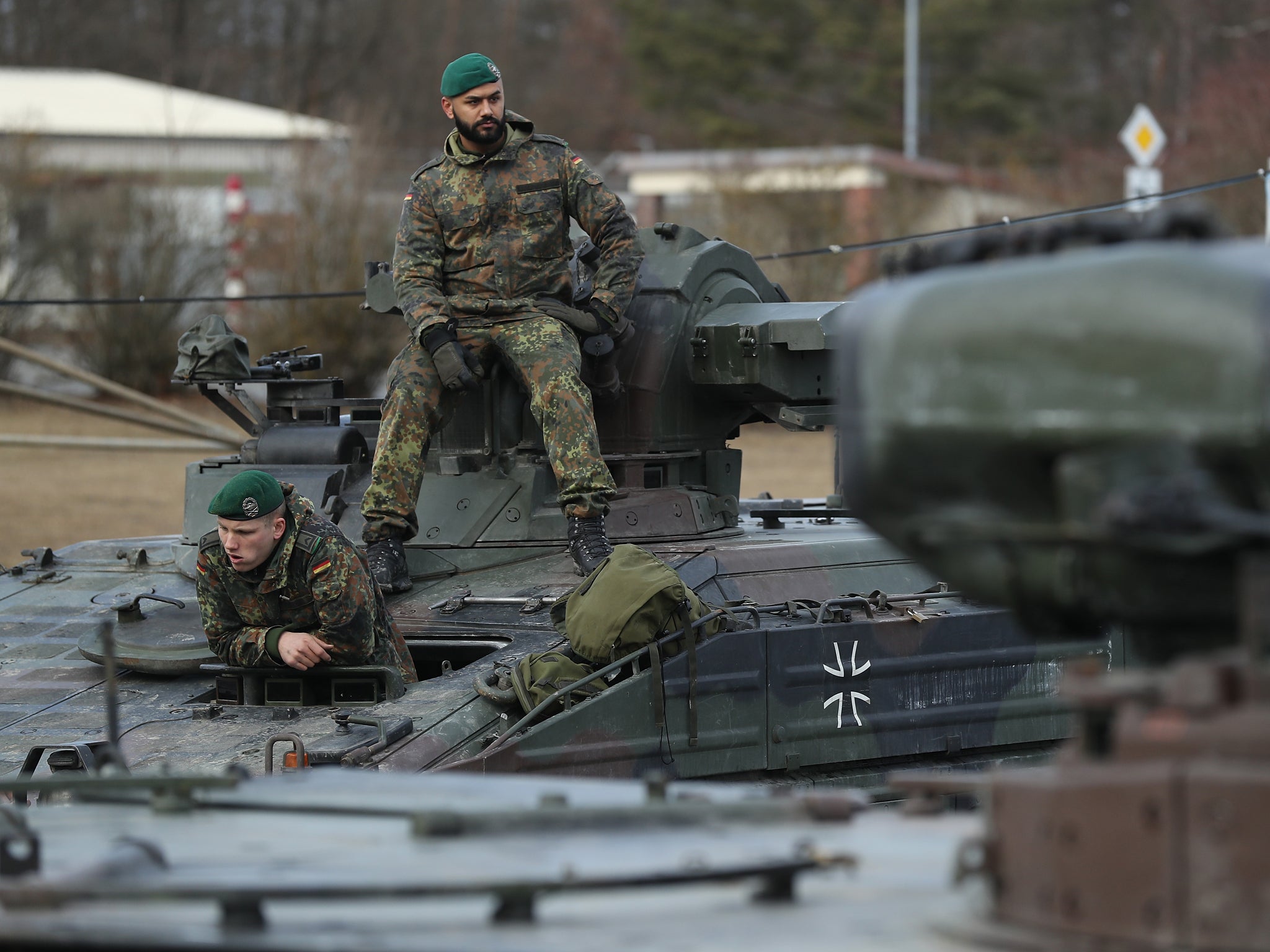Lithuania fears Russian invasion as Kremlin misinformation campaign aims to destabilise Baltics, say officials
Defence minister Raimundas Karoblis says the situation is 'terrifying' and that there is a 'danger to the territorial integrity' of his country

Your support helps us to tell the story
From reproductive rights to climate change to Big Tech, The Independent is on the ground when the story is developing. Whether it's investigating the financials of Elon Musk's pro-Trump PAC or producing our latest documentary, 'The A Word', which shines a light on the American women fighting for reproductive rights, we know how important it is to parse out the facts from the messaging.
At such a critical moment in US history, we need reporters on the ground. Your donation allows us to keep sending journalists to speak to both sides of the story.
The Independent is trusted by Americans across the entire political spectrum. And unlike many other quality news outlets, we choose not to lock Americans out of our reporting and analysis with paywalls. We believe quality journalism should be available to everyone, paid for by those who can afford it.
Your support makes all the difference.Russia has developed the capability to launch an attack on the Baltic states with as little as 24 hours' notice, limiting Nato's options to respond, according to Lithuania's intelligence service.
In its annual threat assessment, it noted that Russia had upgraded its military in the Kaliningrad region last year, reducing lead times for any attack and potentially preventing Nato reinforcements.
Su-30 fighter aircraft and missile systems deployed to region would allow ships to be targeted almost anywhere in the Baltic Sea, it said.
Lithuanian defence minister Raimundas Karoblis has also claimed that Russia is spreading historical propaganda by creating an alternative history, aiming to destabilise the region.
"They are saying our capital Vilnius should not belong to Lithuania because between the first and second world wars it was occupied by Poland. It’s history of course, but Russia is using this pretext,” he told the Guardian.
Describing the situation as “terrifying” he said his country feared the campaign to rewrite history, could be an attempt from Russia to justify a military operation to attack the country.
The misinformation campaign was being propagated through government news agencies and state TV but also from politicians in the lower house of the Russian parliament, he said.
There were parallels with Crimea’s annexation from Ukraine by Russia in 2014, he said.
Russia's military build up in Kalingrad was "a signal to NATO to improve its decision speed," Mr Karoblis said in a separate interview with reporters at the launch of the threat assessment.
"Nato's reaction time is not as fast as we would like it to be," he said.
Earlier this year, Germany sent more than 1,000 troops as well as tanks and armoured vehicles to Lithuania as part of a Nato mission to protect its eastern border with Russia.
Troops from Belgium, Croatia, France, Luxembourg, the Netherlands and Norway are also stationed in the country.
Four Dutch F-16 jets are aslo policing the Baltic air space and soldiers from Nato battle-groups led by the US, the UK and Canada are also deployed in Estonia, Latvia and Poland.
Join our commenting forum
Join thought-provoking conversations, follow other Independent readers and see their replies
Comments